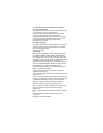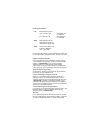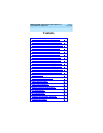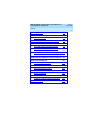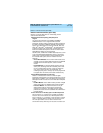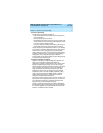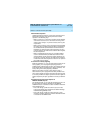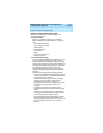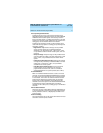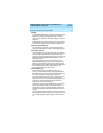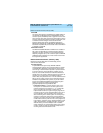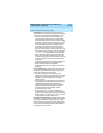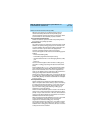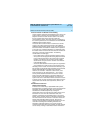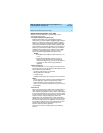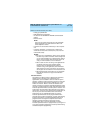
MERLIN LEGEND Communications System Release 7.0
Pocket Reference
555-670-116
Issue 1
April 1999
5
Release 6.1 Enhancements (August 1998)
■ Group Calling Enhancements
A calling group can have a
single
non-local member that is
defined by the Uniform Dial Plan and exists on another MERLIN
LEGEND Communications System connected by a tandem
trunk to the local system. If a calling group contains a non-local
member, the non-local member must be the
only
member in the
calling group. See the
Network Reference
for details.
A calling group containing a single non-local member can be
used for the same purposes as a calling group containing local
extensions, including:
— Night Service. Night Service coverage can be provided
across a private network to a centralized Automated
Attendant, a non-local calling group, a QCC queue, a DLC,
or any individual extension on the remote system, such as a
night bell.
— Group Coverage. Group Coverage can be provided across
a private network to a VMS, a non-local calling group, a QCC
queue, a DLC, or any individual extension on the remote
system.
— Calling Group Overflow Coverage. Calling group overflow
coverage can be provided by a centralized VMS, a non-local
calling group, a QCC queue, a DLC, or any individual
extension on the remote system.
— Calls Directed to Another System. Lines connected to
remote systems can be answered by any extension
programmed to answer the call, such as a centralized
Automated Attendant or a system operator (QCC or DLC).
■ Transfer Redirect
When an Automated Attendant transfers a call to a non-local
extension, the transferring MERLIN LEGEND System monitors
the call to ensure that it is answered. If the non-local extension
is not available, or the call is not answered within the transfer
redirect timeout period (fixed at 32 seconds), the call stops
ringing at the non-local destination and is redirected to the
extension on the same system as the Automated Attendant that
is programmed to receive redirected calls. This redirect
extension can be a QCC queue, a calling group, or an individual
extension.
■ Direct Station Selector
Now users can press a Direct Station Selector (DSS) button for
a non-local extension to make or transfer calls to that extension.
No busy indication, however, is displayed by the DSS for non-
local extensions.
■ Call Forwarding
The Forward feature now can be used to send calls to non-local
extensions across the private network.



